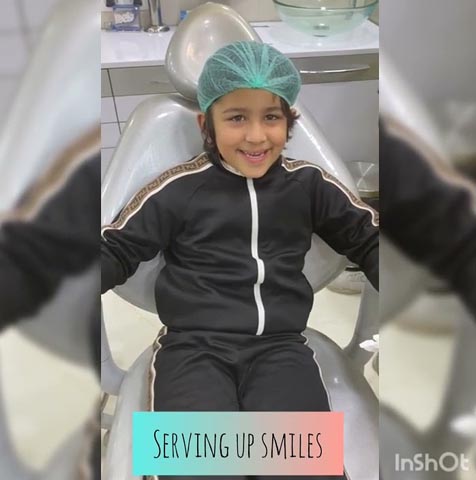
Welcome to Periodontology Services at Dr. Shilpa’s Dental Clinic
Periodontology, also known as periodontics, is the branch of dentistry that focuses on the prevention, diagnosis, and treatment of diseases that affect the gums and other supporting structures of the teeth. At Dr. Shilpa’s Dental Clinic, our skilled periodontists are dedicated to helping patients maintain healthy gums and achieve optimal oral health through comprehensive periodontal care. Let’s explore the importance of periodontology and the range of services we offer.
Understanding Periodontal Disease
Periodontal disease, commonly known as gum disease, is a common yet serious oral health condition that can lead to inflammation, infection, and damage to the gums, bone, and ligaments that support the teeth. If left untreated, periodontal disease can result in tooth loss and may even contribute to systemic health issues such as heart disease and diabetes.
Signs and Symptoms of Periodontal Disease
- Gum inflammation: Swollen, red, or tender gums are often an early sign of periodontal disease.
- Bleeding gums: Gums that bleed during brushing, flossing, or eating may indicate the presence of gum disease.
- Receding gums: Gums that appear to be pulling away from the teeth, exposing the tooth roots, may be a sign of advanced periodontal disease.
- Persistent bad breath: Chronic bad breath that doesn’t improve with oral hygiene may be a symptom of gum disease.
- Loose or shifting teeth: Periodontal disease can cause the supporting bone and ligaments to deteriorate, leading to tooth mobility or changes in tooth alignment.
Periodontology Services Offered
At Dr. Shilpa’s Dental Clinic, we offer a comprehensive range of periodontology services to address the diverse needs of our patients, including:
- Periodontal Evaluation: Our periodontists perform thorough examinations of the gums and supporting structures to assess the presence and severity of periodontal disease. This may include measuring gum pocket depths, evaluating gum recession, and assessing tooth mobility.
- Scaling and Root Planing: Also known as deep cleaning, scaling and root planing is a non-surgical procedure that involves removing plaque and tartar from below the gumline and smoothing the tooth roots to promote gum reattachment and healing.
- Gum Grafting: Gum grafting procedures may be recommended to restore lost gum tissue and improve the aesthetics and stability of the gumline. This may involve taking tissue from another area of the mouth or using donor tissue to augment the gums.
- Periodontal Surgery: In cases of advanced periodontal disease or severe gum recession, surgical intervention may be necessary to restore gum health and function. Surgical procedures such as flap surgery, bone grafting, and guided tissue regeneration may be performed to repair damaged tissues and promote healing.
- Maintenance Therapy: Following periodontal treatment, ongoing maintenance therapy is essential to prevent the recurrence of gum disease and maintain optimal oral health. This may include regular periodontal cleanings, personalized oral hygiene instructions, and periodic reevaluation by our periodontal team.
Why Choose Dr. Shilpa’s Dental Clinic for Periodontology Services?
- Experienced Periodontists: Our skilled periodontists have years of experience and expertise in diagnosing and treating periodontal disease using the latest techniques and technologies.
- Personalized Care: We take a personalized approach to periodontology, tailoring treatment plans to meet the unique needs and goals of each patient.
- State-of-the-Art Facilities: Our clinic is equipped with state-of-the-art diagnostic and treatment tools, allowing us to provide high-quality periodontal care in a comfortable and welcoming environment.
- Comprehensive Services: From preventive care to advanced surgical treatments, we offer a full range of periodontology services to address all aspects of gum health and disease.
- Patient-Centered Approach: We prioritize patient comfort, safety, and satisfaction, providing compassionate care and support throughout the periodontal treatment process.
Schedule Your Periodontal Evaluation Today!
If you’re experiencing symptoms of gum disease or are in need of periodontal care, don’t wait any longer to seek treatment. Schedule a periodontal evaluation with our experienced periodontists at Dr. Shilpa’s Dental Clinic today. We’ll work with you to develop a personalized treatment plan to restore your gum health and enhance your overall well-being.
Contact us today to schedule your appointment and take the first step toward achieving a healthy, beautiful smile!
FAQs (Frequently Asked Questions) about Periodontology:
Q: What is periodontology? A: Periodontology, also known as periodontics, is the branch of dentistry that focuses on the prevention, diagnosis, and treatment of diseases that affect the gums and other supporting structures of the teeth, including the bone and ligaments.
Q: What causes periodontal disease? A: Periodontal disease is primarily caused by bacterial plaque buildup on the teeth and gums. Factors such as poor oral hygiene, smoking, genetic predisposition, hormonal changes, and certain medical conditions can increase the risk of developing periodontal disease.
Q: What are the consequences of untreated periodontal disease? A: Untreated periodontal disease can lead to a range of oral health problems, including gum inflammation, gum recession, tooth loss, and bone loss. In addition, research has shown that periodontal disease is linked to systemic health issues such as heart disease, diabetes, and respiratory problems.
Q: How can I prevent periodontal disease? A: Practicing good oral hygiene habits is essential for preventing periodontal disease. This includes brushing your teeth twice a day, flossing daily, using antimicrobial mouthwash, and attending regular dental check-ups and cleanings. Avoiding tobacco use, maintaining a healthy diet, and managing stress can also help reduce the risk of gum disease.
Q: What are the treatment options for periodontal disease? A: Treatment for periodontal disease varies depending on the severity of the condition. In mild cases, non-surgical treatments such as scaling and root planing (deep cleaning) may be sufficient to remove plaque and tartar buildup and promote gum healing. In more advanced cases, surgical interventions such as flap surgery, bone grafting, and guided tissue regeneration may be necessary to restore gum health and function.
Q: Is periodontal treatment painful? A: Periodontal treatment may cause some discomfort or soreness, especially after surgical procedures. However, any discomfort is usually mild and temporary and can be managed with over-the-counter pain relievers. Our periodontal team will take steps to ensure your comfort during treatment and provide you with post-operative care instructions to promote healing.
Q: How long does periodontal treatment take? A: The duration of periodontal treatment varies depending on factors such as the severity of the periodontal disease, the chosen treatment method, and the individual’s response to treatment. Some cases may be resolved with a single treatment session, while others may require multiple appointments over several weeks or months.
Q: Can periodontal disease be reversed? A: In its early stages, periodontal disease (gingivitis) can often be reversed with proper oral hygiene and professional dental care. However, once periodontal disease has progressed to more advanced stages (periodontitis), it cannot be fully reversed, but it can be effectively managed with ongoing periodontal treatment and maintenance therapy to prevent further damage and maintain gum health.






